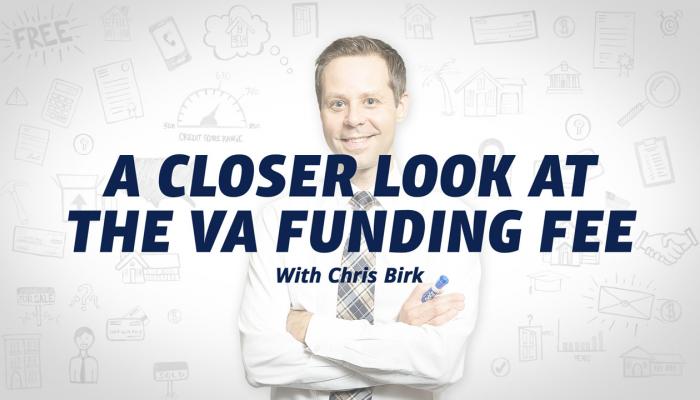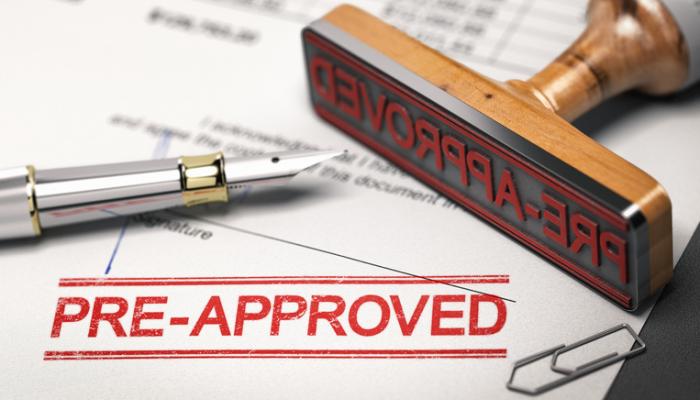You could fill a book with all of the myths and misconceptions surrounding VA home loans.
One of the most persistent is the belief that VA loans inherently cost more than other types of mortgages due to the other many benefits of VA loans. Whether it's because of the $0 down benefit, or the fact that there's no mortgage insurance, or that it's a government-backed loan, there's a pervasive sense that veterans will either pay more to get a VA loan or pay more each month in the form of a higher mortgage payment -- or both.
Let's put this one to rest: VA loans are not categorically more expensive than any other home loan. The reality is VA home loans are often less expensive than other mortgages, regarding both upfront costs as well as monthly payments.
To be sure, every mortgage and financial situation is different. It can help to take a closer look at some of the factors that influence costs among the different loan types.
» CALCULATE: Calculate your VA Loan savings
Upfront Costs
The signature benefit of the VA loan program is that qualified borrowers can purchase without making a down payment. That's a significant financial advantage for military members and veterans, who don't have to spend years stockpiling cash.
Conventional loans typically feature a minimum 5 percent down payment. For FHA loans, it's 3.5 percent. On a $200,000 loan, that's a $10,000 down payment for conventional and $7,000 for FHA.
Those are big sums that VA borrowers don't have to worry about. In addition, VA loans don't carry any kind of mortgage insurance. Conventional and FHA borrowers who can't put down 20 percent will have to spend extra money each month on mortgage insurance.
FHA loans have both an upfront and a monthly mortgage insurance premium, which homebuyers now pay for the life of the loan. Conventional borrowers can usually stop paying for mortgage insurance once they've established about 20 percent equity in the home.
One upfront cost that VA loans have is the VA Funding Fee. This is a mandatory charge for all purchase and refinance loans unless the borrower has a service-connected disability. This fee -- typically 2.15 percent of the loan amount for first-time buyers -- goes straight to the VA and helps keep the program going. Much like the FHA's upfront mortgage insurance, VA borrowers can finance this fee into their loan.
Interest Rates
This is another area rife with misconception. Average interest rates tend to be lower on government-backed loans than conventional ones. Within the government-backed realm, average rates on VA loans are often slightly lower than on FHA loans.
To be sure, interest rates can change constantly, and the rate you get quoted will depend on a number of factors. But that snapshot in time helps underscore the fact that rates on VA loans are competitive with -- if not consistently lower than -- conventional mortgage rates.
Closing Costs
Closing costs can vary based on so many ultra-specific things, from where you're buying and the lender you're using to the type of loan and what you're able to negotiate with a seller.
One of the benefits of VA loans is that they limit what borrowers can pay in closing costs. There are actually some costs VA borrowers aren't allowed to pay. Sellers in a VA transaction can pay all of the borrower's loan-related closing costs and an additional 4 percent of the loan amount in what are called "seller concessions." These can include things like prepaid property taxes and homeowners insurance or paying off a borrower's bad debts at closing.
FHA loans allow sellers to contribute up to 6 percent toward a borrower's closing costs. For conventional loans, it typically varies depending on the size of your down payment.
The VA Funding Fee and the FHA's upfront mortgage insurance premium are closing costs that conventional borrowers don't face.
Comparing closing costs among loan types and lenders can help highlight the differences for your specific situation. At the end of the day, only a qualified mortgage professional can tell you which options make sense for you based on your credit, finances, and homeownership goals.
Talk with a Veterans United VA Loan Expert at 855-870-8845 to get started.
Answer a few questions below to speak with a specialist about what your military service has earned you.
Related Posts
-
 2024 VA Funding Fee: Complete Explainer with Charts and ExemptionsThe VA funding fee is a governmental fee required for many VA borrowers. However, some Veterans are exempt, and the fee varies by VA loan usage and other factors. Here we explore the ins and outs of the VA funding fee, current charts, who's exempt and a handful of unique scenarios.
2024 VA Funding Fee: Complete Explainer with Charts and ExemptionsThe VA funding fee is a governmental fee required for many VA borrowers. However, some Veterans are exempt, and the fee varies by VA loan usage and other factors. Here we explore the ins and outs of the VA funding fee, current charts, who's exempt and a handful of unique scenarios. -
 Can Your Mortgage Be Denied After Preapproval?It is possible for you to get denied for a home loan after being preapproved. Find out why this may happen and what you can do to prevent it.
Can Your Mortgage Be Denied After Preapproval?It is possible for you to get denied for a home loan after being preapproved. Find out why this may happen and what you can do to prevent it.


